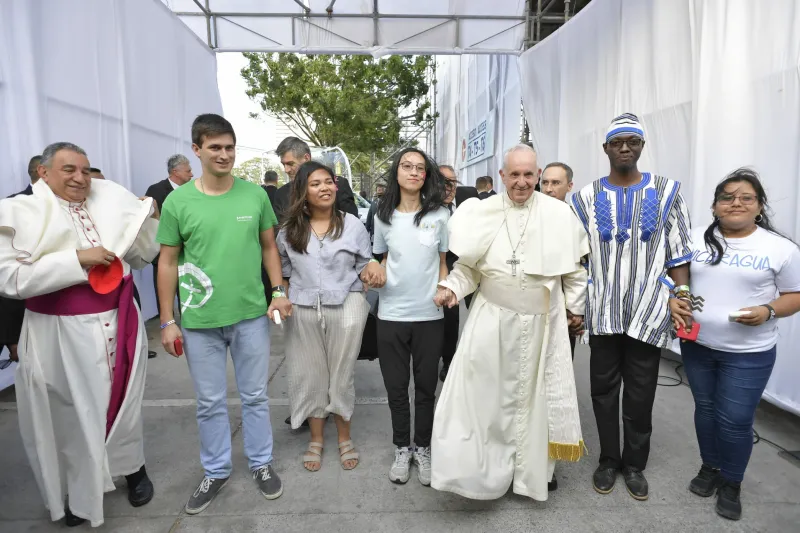
Vatican City, Jun 28, 2022 / 04:05 am (CNA).
Pope Francis on Tuesday encouraged young people to spend their summer break from school in a good way, such as by spending time in rest, prayer, service, and helping their families.
“I encourage you to use well and responsibly the time that is available to you: it is in this way that one grows and prepares oneself to take on more demanding tasks,” the pope said in a June 28 video message.
“Besides recreation and rest, I know that some of you use this time to offer help voluntarily in solidarity initiatives; others devote themselves to small jobs to lend a hand to their family or to support their studies; others carve out days of silence and prayer to be with God and to receive light on their path,” he said.
The video was sent to 130 youth, ages 12-18, taking part in a week-long Global Youth Tourism Summit in Sorrento, Italy.
Teenagers from 60 countries, including the United States, Ukraine, Italy, Sudan, Yemen, Armenia, and Kazakhstan, will take classes on different aspects of the tourism industry from June 27-July 3.
“For those of you who are still students, tourism coincides with the time of the school holidays,” Pope Francis said. “The experiences one can have in this period will remain in your memory.”
“I hope you will be messengers of hope and rebirth for the future,” he concluded. “I send you my blessing and my greeting.”
If you value the news and views Catholic World Report provides, please consider donating to support our efforts. Your contribution will help us continue to make CWR available to all readers worldwide for free, without a subscription. Thank you for your generosity!
Click here for more information on donating to CWR. Click here to sign up for our newsletter.




The young people – they are the future stewards of Planet Earth our Common Home. May each one of them be blessed with a happy present and a bright future.